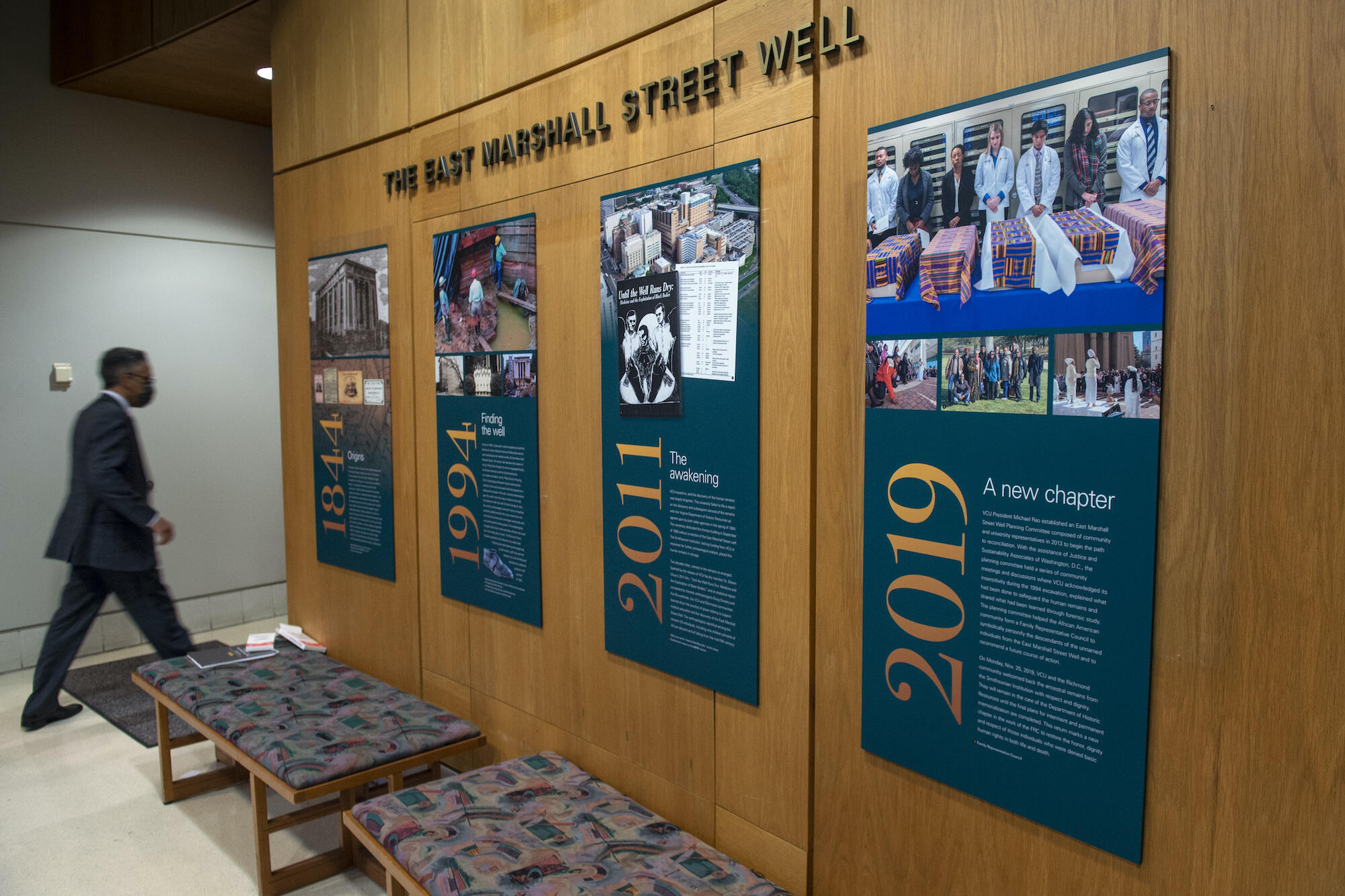
Sept. 16, 2022
Resolution regarding the late organ donor Mr. Bruce Tucker and the East Marshall Street Well
Share this story
WHEREAS, Virginia Commonwealth University is the premier urban, public research university and academic health system distinguished by its commitment to the intellectual and academic success of a diverse student body; research and discovery that advances knowledge, inspires creativity and improves human health; and the global engagement of students, faculty and staff that transforms lives and communities;
WHEREAS, Virginia Commonwealth University and VCU Health System Authority (“VCU”) goals are to foster a commemorative landscape that reflects the University and Health System’s core values of achievement (ensuring distinction in learning, research and scholarly pursuits and service), diversity, equity and inclusion (where all people are valued and differences are recognized as assets), and service (engaging in the application of learning and discovery to improve the human condition and support the public good at home and abroad);
WHEREAS, the Virginia Commonwealth University’s Committee on Commemorations and Memorials (the “Committee”) was created through the Virginia Commonwealth University Board of Visitors’ Memorials and Commemorations policy, which states that all requests for memorials, commemoration and/or de-commemoration be submitted in writing to the Assistant Secretary to the Board of Visitors and Board Liaison, who will refer the request to the Committee. The Committee shall make a recommendation to approve memorials, commemorations and de-commemorations to the President, who in turn shall make a recommendation to the Board of Visitors.
WHEREAS, in the mid 1800s, what was then the Medical College of Virginia (“the Medical College”), engaged in medical experimentation and research that resulted in dehumanizing practices for handling the remains of primarily Black and enslaved people;
WHEREAS, when these remains were discovered during construction on campus in 1994, VCU did not render proper recognition and respect for the invaluable lives and memories of these individuals;
WHEREAS, Mr. Bruce Tucker, a Black man and fellow Virginian, contributed to an important medical advancement as the donor for the Medical College’s first heart transplant but his procedure was done without his or his family’s knowledge and consent;
WHEREAS, VCU must confront its institutional history; contribute to the healing process by centering the voices that have too often been silenced; and create a body of knowledge that generations to come can learn from and continue to use to inform meaningful change;
WHEREAS, VCU regrets the grave injustice against these lives and commemorates VCU’s East Marshall Street Well site in an effort to ensure they are not forgotten and that VCU can learn from this dark moment in history;
WHEREAS, VCU humbly recognizes and deeply regrets the historic inequity and systemic marginalization of individuals as they do not reflect the society VCU works to advance - one in which people of diverse backgrounds and experiences are given the dignity and respect their humanity deserves.
NOW, THEREFORE, BE IT RESOLVED, VCU acknowledges and sincerely apologizes to the late Mr. Bruce Tucker, and to his family, for the Medical College’s transplant of his heart 54 years ago.
NOW, THEREFORE, BE IT RESOLVED, VCU acknowledges that to achieve its aspiration of being a national leader in education, research and health services VCU must embody the values aforementioned.
NOW, THEREFORE, BE IT RESOLVED, Virginia Commonwealth University Board of Visitors and VCU Health System Board of Directors authorize the commissioning of a plaque - to be funded by VCU School of Medicine faculty members - to honor Mr. Tucker’s important role in the early history of heart transplantation, and to place it in a location of honor at VCU Medical Center.
Subscribe to VCU News
Subscribe to VCU News at newsletter.vcu.edu and receive a selection of stories, videos, photos, news clips and event listings in your inbox.